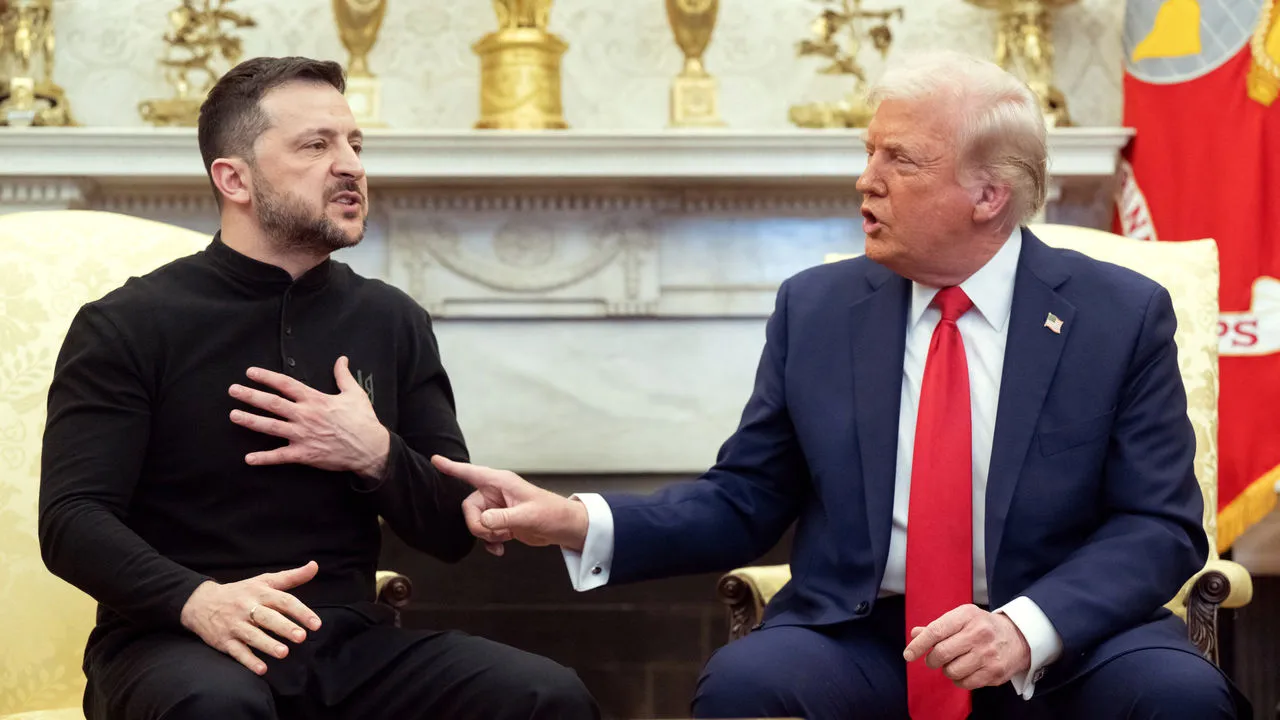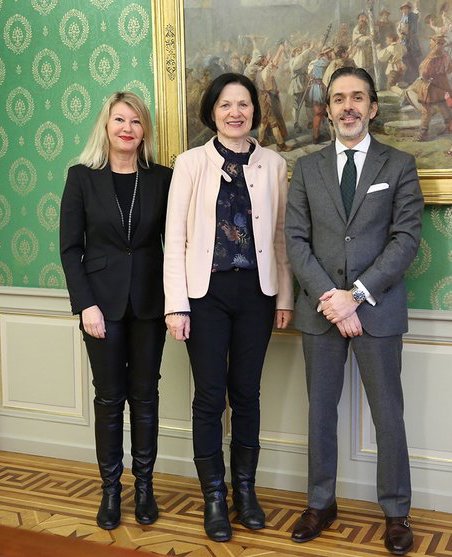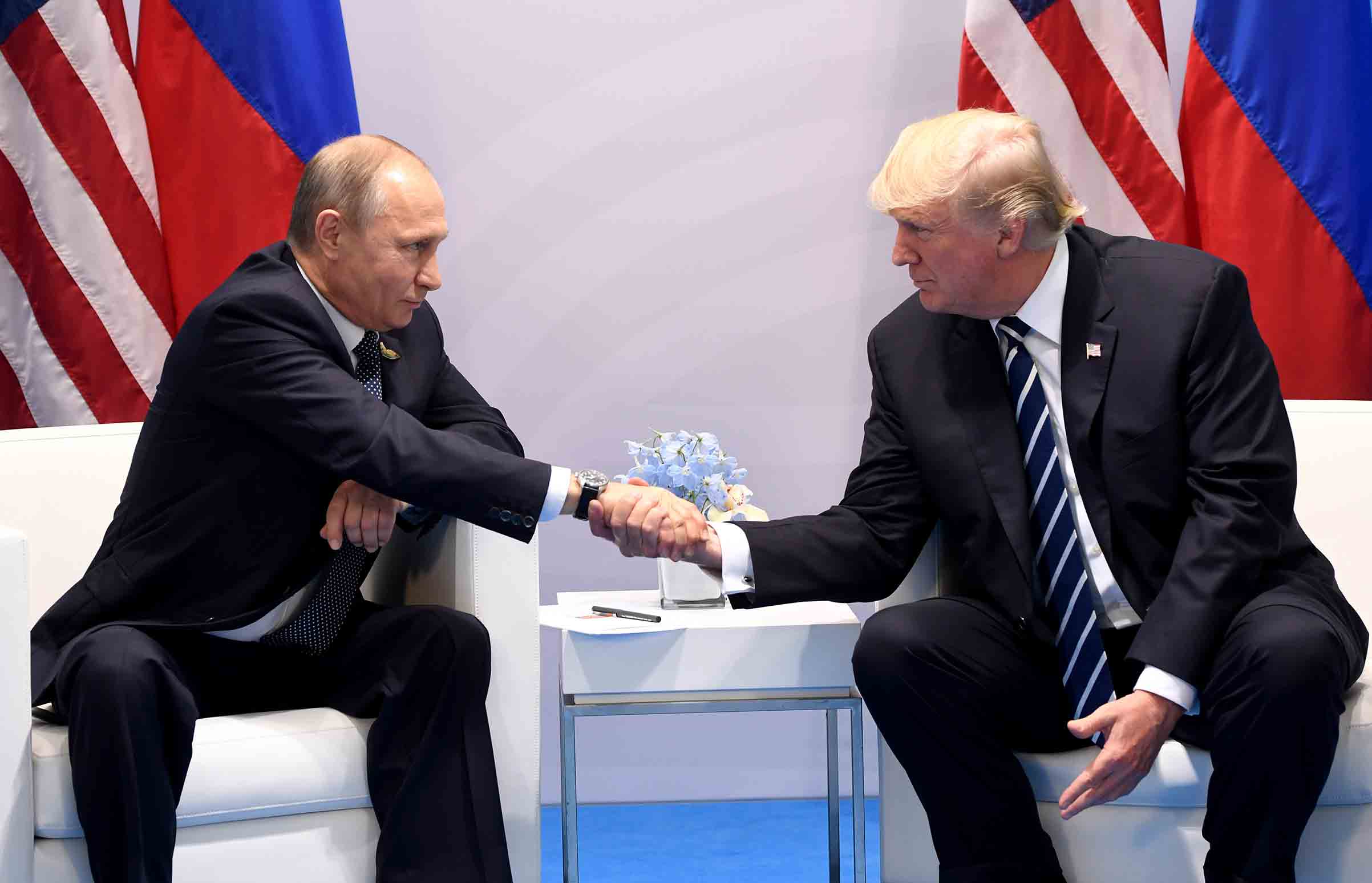By Maria Somova, Year 12
Last week of February marked a clear change of the foreign policy of the United States – a start of an alliance with the Russian Federation, despite its current involvement in a full-scale invasion, and occupation of territories of several neighbouring sovereign states.
After long and beneficial relations between the United States and Ukraine, the relations between the two administrations started to fray. As the first Russia-USA talk took place in Riyadh, “behind Ukraine’s back”, President Zelensky commented: “Once again, decisions about Ukraine are being made without Ukraine.” While EU leaders conveyed the same attitude towards the starting peace talks, President Trump claimed to be “disapointed” by Ukraine’s reaction and appeared to blame Ukraine for starting the war.
However, these tensions culminated on February 28th when president of Ukraine Volodymyr Zelensky came to Washington to discuss a pending bilateral security pact, and with an intention to sign a rare-minerals deal. After the arrival of President Zelensky to the White House, he was greeted with the same cordial routine the White House reserves for foreign delegates. He was welcomed by PM Vance and newly elected President Trump. Although at that moment there were no signs of trouble, the negotiations drastically escalated after the first couple minutes of the press conference. Trump repeated false claims that the US has paid over $350 billion in military support to Ukraine, an inaccuracy disputed publicly during French President Emmanuel Macron’s visit earlier that week. Zelensky contradicted the US president in the rather comical exchange.
Zelensky: Really, we can help Europe, because Europe really helped… President Trump said they [offered] less support, but they are our friends and very supportive partners… They really gave a lot, Mr President.
Trump: Really? Maybe they did, but they gave much less.
Zelensky: No.
Trump: Much less.
Zelensky: No.
Trump: … less …
Zelensky: No.
Trump: Okay (waves hand).
The rest of the conversation followed in a similar manner, with attempts from the American side to force President Zelensky into signing the deal by pure humiliation, with out of context remarks such as “Why you are not wearing a suit?”. Unfortunately, instead of its aims for peace, negotiations were turned by the US administration into a “great show for the television,” – as President Trump said at the end.
Before and during the meeting, the US President repeatedly implied that he values the completion of the “deal” rather than US’ allies in Europe. “Security is so easy – that’s about 2% of the problem. I’m not worried about security, I’m worried about getting the deal done,”– said Trump.
However, is it truly Ukraine’s fault, for not aiding the deal? History tells otherwise.
1994 – Budapest Memorandum led to Ukraine’s renunciation of its all nuclear arsenal, in exchange for security guarantees from the US, the UK and Russia.
1997 – The “Treaty of Friendship”, a “partnership” and “cooperation” between Ukraine and Russia, enshrining the recognition of the inviolability of existing borders and respect for territorial integrity.
2008 – NATO rejects both Ukraine and Georgia, to avoid “provoking” Russia into armed aggression. The same year Russia annexed the territories of Abkhazia and the Tskhinvali regions in Georgia.
2014 – Minsk Agreements, to a temporary ceasefire in the war in eastern Ukraine. Which Russia breaks in January 2015
2019 – Normandy Format Meeting, with the goals to approve the new sequence for implementing the Minsk Agreement, including, again a ceasefire.
2022 – Start of the full-scale invasion, and no actions from the allies in the first, most crucial weeks.
And now in 2025 does the world truly expect for Ukraine to give in once more for the guarantees that the other party is not interested in? Trump claims that by just showing an “economic interest” in the region, he will be able to protect it from further attacks. So what is it? Is the US administration so blinded by seeing China as a threat, that it will seek alliance with anyone? Or does this show the start of the demise of one of the world’s most powerful nations?
As a result, the United States suspended all military aid on the fourth of March to Ukraine, firmly demonstrating their position in this ongoing war.
Sources



